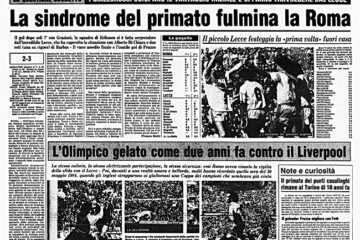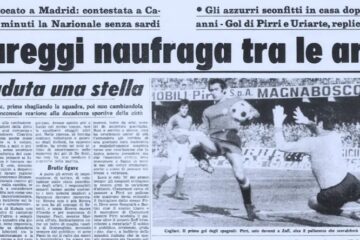The divine free kick, a brushstroke made with the left foot!
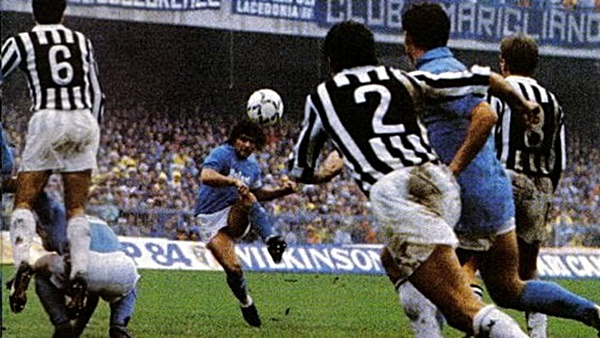
Maradona’s free kick to Juventus.
Platini discovered that “it always rains in Naples”
Michel did not know that such an extraordinary gesture could only be achieved in the rain.
That wets in Naples much more than we can imagine. Platini thought he had discovered who knows what. “They boast of being the country of the sun, but when I come to Naples it always rains.” Michel didn’t know, it must be said, that he had discovered hot water.
Of course it rains in Naples, and it was raining that afternoon, November 3, forty years ago. The day of the most beautiful free kick ever. The truly strange things were other things.
The first: Maradona concludes with header into Tacconi`s goal.
The second: Maradona again concludes with his right foot.
The third: Scirea, the angel Scirea, forced to slide foul on the devil Diego.
Then, when everything seemed to be over, came that shot that we have known all about for a long time now.
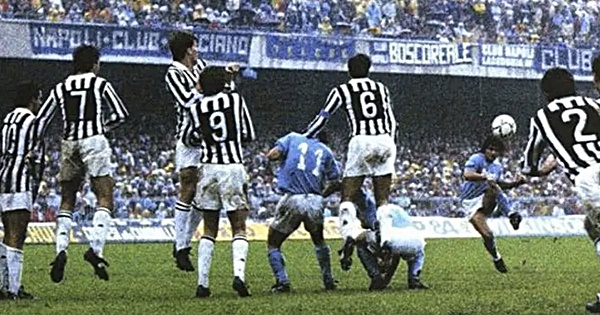
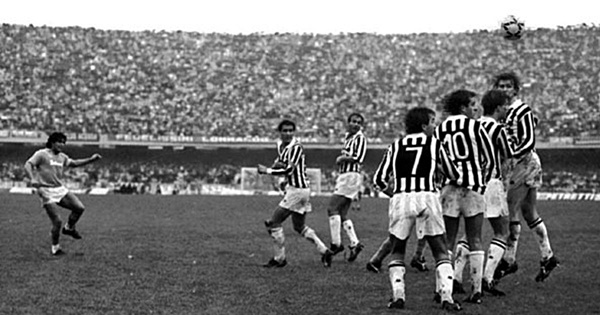
Described and told only with metaphors. The stroke of genius, the brush stroke, a curl painted with the left foot.
Juventus were coming off eight consecutive victories in the first eight match days, losing 1-0 with that goal scored from a two-man free kick in the area, the wall very close, an impossible trajectory.
The famous short touch of Pecci the big foot, the famous story of Bruscolotti, the famous tumble of Celestini while he was celebrating under the stands.
Only under the rain could it succeed!
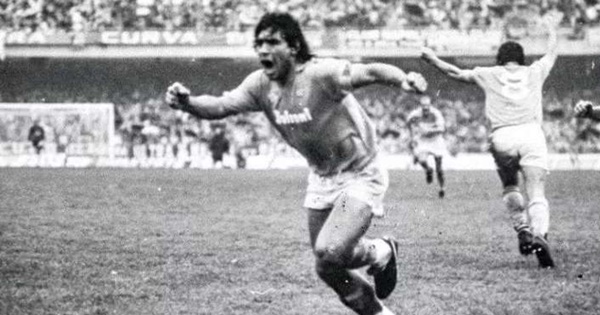
What Platini could not imagine is that only under rain could such an extraordinary gesture succeed. As Pino Daniele had sung only five years earlier, ““quanno ll’acqua te ‘nfonne e va, ll’aria s’adda cagnà”, and in the Italian championship the air was starting to change that very day.
A kingdom was in crisis – after that 1985/86 Juve would not win the title again until 1995 – just as under the rain Eduardo De Filippo’s theatre had caused the family tradition to go into crisis in “Questi fantasmi”. When Pasquale Lojacono takes refuge in terror on one of his balconies, “the storm takes on apocalyptic characteristics. The rain is imminent”.
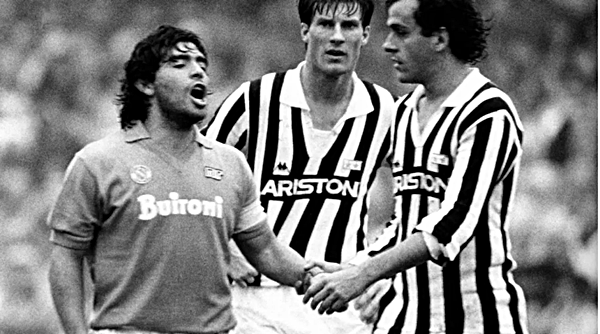
“Malacqua”!
The bulk of the body of works of Neapolitan literature bears witness to this: the more exceptional an event is, the more water falls on the city. The mother text is “Malacqua” by Nicola Pugliese. Rain is the absolute protagonist from the first to the last page.
The subtitle is very clear: “Four days of rain in the city of Naples waiting for an extraordinary event to occur”. But if we dig deep into history and its representation, the extraordinary event is actually daily. As Giuseppe Pesce noted in ““Napoli, il dolore e la non storia”,, it lives within the feelings of the Neapolitan people, who spend their time in the constant prospect of witnessing a miracle, or so to add: in the most active of hypotheses, of taking part in it.
Sergio’s taxi, the protagonist of Rak’s film “The Art of Happiness”, travels through the streets of a rain-lashed Naples, and under that water he will be able to realize feelings he imagined lost. It is only the last step of a long journey. As Sergio Perrella points out in the introduction to Ermanno Rea’s “Mistero napoletano”: “How much it rains inside Neapolitan books!”.
Books, comics or films, it would be better to add. The first to break with the official oleography, after decades of songs in which ‘o sole mio sta ‘nfronte a te, was perhaps Carlo Bernari who came out in ’34 with “Tre operai” to tell of a south, from Naples to Taranto, become a place of chimneys and downpours.
It is a diaphragm that breaks. It did not rain in Basile’s Cunto de li Cunti and in the villanelles it did not go beyond a light and fine rain (the famous splashing). In short, just as they had told Platini “this is the country of the sun”. A falsehood, one of many. Bernari breaks the front of silence.
Then will come, among others, “Via Gemito” by Starnone and “L’amore molesto” by Ferrante. Igort will come with his “5 the perfect number” to portray a dark and livid city. Nino D’Angelo will come to sing in “Brava gente” that “chiove chiove nun acqua, è sanghe ca po’ è ‘nfonne”.
Massimo Troisi will come to vent his friend Lello Arena’s sentimental sorrows in the rain in “Scusate il ritardo”.
Even in “Malacqua” the rain remains linked to eros. “When he approaches and rubs on her thigh, Giovannella stretches her back and squeezes with her legs in a bow to hold back, and this river that arrives oh this river and the world opens up and the earth opens up, now, and welcomes, yes, welcomes everything, the furrow descends, descends into the depths”.
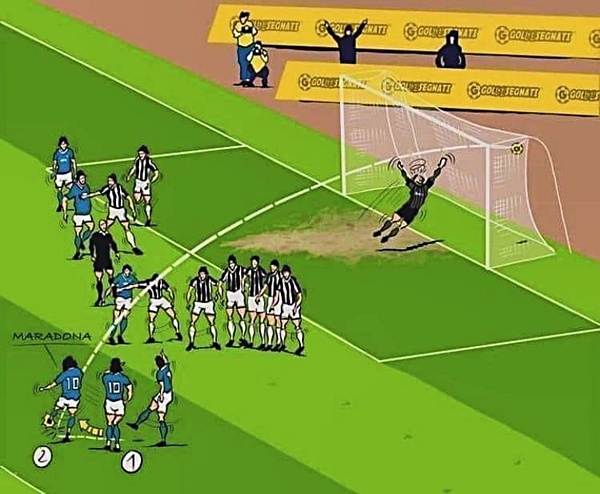
Even Maradona’s goal, which gave Juventus death by water, was ultimately nothing more than a penetration.
Translated to English by: Pjerin Bj
April 15, 2025
___________________
Sports Vision +Plus / Champions Hour in activity since 2013
Discover more from Sports Vision +
Subscribe to get the latest posts sent to your email.


